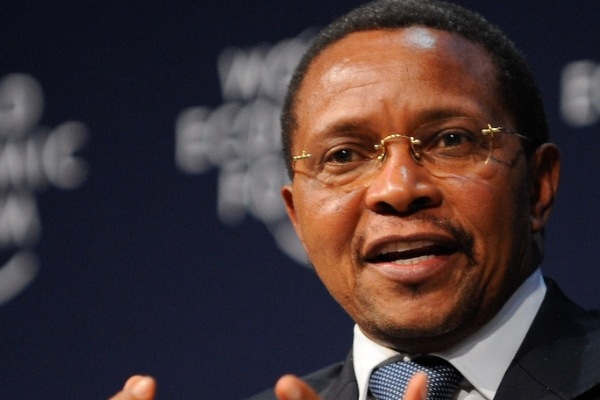
Kikwete Can Whisper to Uganda’s Museveni
- Category: The Comrade
- Date 23-05-2020
- 744 views
The Comrade believes that Bongo is certainly a strong nation. The 39th President of the United States of America, Jimmy Carter once said that ‘a strong nation is like a strong person - gentle, firm, thoughtful and restrained’. It is such a nation that can extend a helping hand to others.
To give a hand to others presupposes that you have a minimum of two hands: the first is to help yourself; the second is to help others. Bongo appears to have the two necessary hands one of which can be extended to a neighbour like Uganda.
Under President Kikwete, Bongo has become exemplary in fighting corruption. The Comrade still marvels at the 2008 events when the Bunge launched an attack against alleged corrupt trends within cabinet circles. The Prime Minister, Mh Edward Ngoyai Lowassa, was implicated in an energy deal scandal, where a US based electricity company, Ricmond Development, was purportedly awarded a contract fraudulently to supply generators to mitigate the country’s power shortage.
A parliamentary committee chaired by Mh Harrison Mwakyembe found that the generators delivered were not merely substandard; they also arrived too late. Lowassa’s office also allegedly extended the contract of Richmond, against the technical opinion of TANESCO. Mwakyembe’s committee declared that this was irregular and had caused avoidable loss.
Facing such accusations, Premier Lowassa volunteered to quit government. He said that it was not true that he had assisted the committing of the tittle-tattle and thus he was being wrongly accused. The temperate Premier offered to step aside to ease the process assigning the liability. This was unique in the country’s political history and indeed very abnormal on the continent of Africa.
Two other ministers Nazir Karamagi and Ibrahim Msabaha copied from their boss and relinquished their positions in government as well. Very soon, President Kikwete sacked the entire cabinet – and this where he should whisper to Uganda’s Yoweri Museveni.
In 2007, Uganda hosted the queen of England, accompanied by presidents and prime ministers from more than 50 countries during the commonwealth heads of government meeting (CHOGM) in Kampala. It has emerged that most government officials who performed different tasks during the event saw it as an opportunity to rob as much money as they could lay their hands on.
Only a week ago, the parliamentary committee concluded investigations into the theft and presented a touching report to the parliament. The committee leader, Mr Nathan Nandala Mafabi pointed out that Uganda learnt that it would host CHOGM in 2005 but did not start preparations till late 2006. Analysis shows that processes were delayed to create a state of emergency and confusion so as to skirt regulations and proper procedures.
With little time remaining, procurements were rushed and, in the process, the tax payer was cheated through high prices, poor quality services and products. In most cases, the committee found out, the prices were three times higher than prevailing market prices. An example is a conference hall where regular workshops occur in Kampala; it was hired at 800 million shillings ($400,000) per day yet it ordinarily does not exceed one million Uganda shillings a day.
The committee found that expenditures for CHOGM rose from about 270 billion shillings approved by parliament to more than 500 billion. There were wide differences between the prices charged and the published price lists of items on the official government sites. Nothing was done in the right way, as nearly all procurements had loopholes in respect to compliance with established procurement procedures. Expert advice by technocrats in various ministries was ignored in almost decisions and transactions.
Roads which were constructed or repaired at huge costs instantly developed defects including potholes, depressions, and erosions. In many cases, ministers hijacked technical plans and forced road engineers and equipment to work on roads leading to their own residences or other private property.
The Public Accounts Committee thus recommended that ministers who clearly organised and executed the robbery should be punished. Past experience, however, shows that people who are considered as most corrupt in Uganda are also known as ‘untouchable’. President Kikwete can thus whisper into Museveni’s ear, “Sack the cabinet as well as you!”
By Venansio Ahabwe
Source: The Comrade, The Guardian on Sunday
